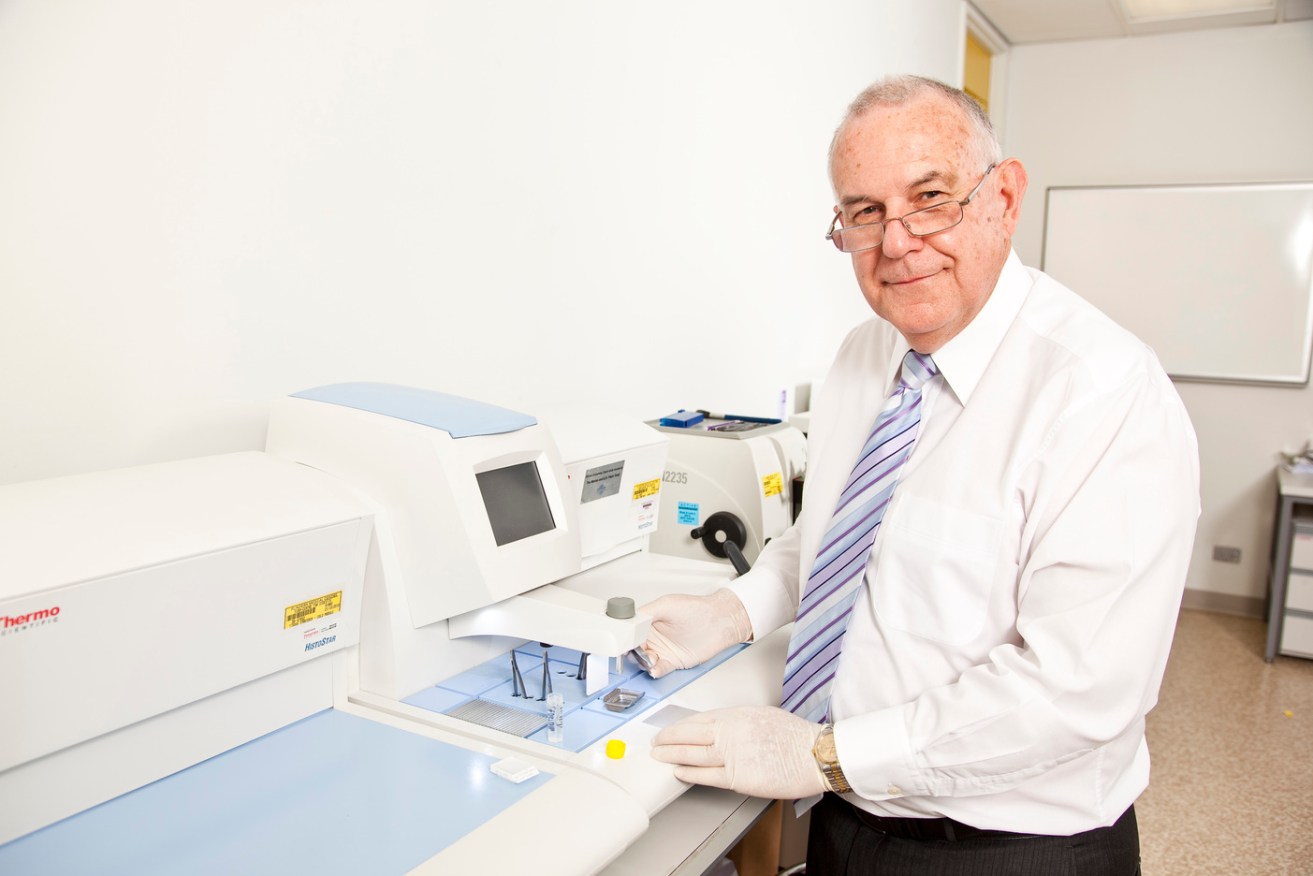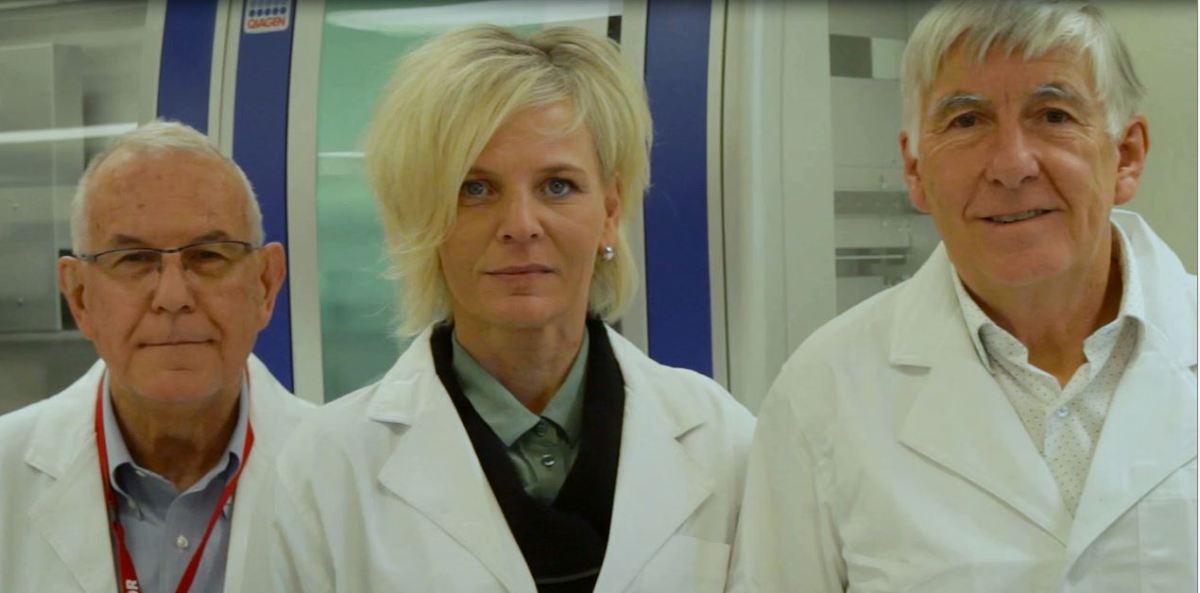Bowel cancer blood screening a step closer
Pioneering cancer research at Flinders has led to development of a new blood test called Colvera, which is in the shortlist for a national Eureka science award.

Flinders University Professor of Global Gastrointestinal Health and Matthew Flinders Distinguished Professor Graeme Young at the Flinders Centre for Innovation in Cancer.
The Colvera technology, based on earlier research led by Matthew Flinders Distinguished Professor Graeme Young and scientists at the Flinders Centre for Innovation in Cancer, is a clinically validated blood test to detect cancer in the blood plasma which will soon be available in Australia after recent trials in the US.
The new test, developed by Flinders in collaboration with the CSIRO and US biopharmaceutical Clinical Genomics Pty Ltd, is a finalist in the Australian Museum Johnson & Johnson Eureka Prize for Innovation in Medical Research.
Professor Young’s earlier work helped to establish the Australian National Bowel Cancer Screening Program, which seeks to make early detection of colorectal cancers in people aged over 50 years old.
The campaign to screen all Australians for bowel cancer, which started at Flinders a decade ago, led to development of the new blood test for colorectal cancer patients.
“In Australia, 40 new cases are diagnosed each day, with 50% suffering a recurrence after a treatment of the initial illness,” says Professor Young.
“This new and more effective test called Colvera can detect cancer DNA in the blood. After testing in the US last year, it will soon be available in Australia.”
The Colvera test presents an accurate and sensitive test for oncologists to improve treatment regimens through earlier disease detection that may lead to increased patient survival.
The Colvera Team was been shortlisted for the main Eureka medical research award to be presented at Sydney Town Hall on 30 August.
Other finalists in the Eureka category for outstanding medical research include a simple blood test that allows clinicians to rapidly and accurately determine which three types of multiple sclerosis in a patient and the Affordable Dialysis System developed by the George Institute for Global Health and Ellen Medical Devices.
The MS Biomarker Team comprises Macquarie University, St Vincent’s Hospital Sydney, Menzies Institute for Medical Research, University of Tasmania and University of NSW.

Members of the Colvera team including Professor Young, Dr Susanne Pederson (Clinical Genomics) and Dr Peter Molloy (CSIRO).
Bowel cancer, also known as colorectal cancer (CRC), is the second most common cause of death from cancer in Australia, with almost 15,000 new cases diagnosed annually. It is responsible for more than 600,000 deaths worldwide each year.
Post-surgical recurrence of CRC occurs in 30 to 50 percent of cases, most often in the first two to three years following initial diagnosis and treatment.
The current method for monitoring recurrence is via a blood test for carcinoembryonic antigen (CEA) in combination with CT scans and other clinical assessments. CEA is a widely known marker for gastrointestinal tract diseases, especially CRC, however it has low sensitivity and is subject to false-positive results, limiting its usefulness.
Other SA researchers involved in the CRC and Colvera research include Dr Erin Symonds, Steve Cole, Associate Professor Chris Karapetis, Letitia Pimlott, Jane Upton, Professor Robert Fraser, Susie Byrne, Libby Bambaccas, Dr Paul Hollington and Professor David Wattchow.





